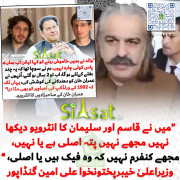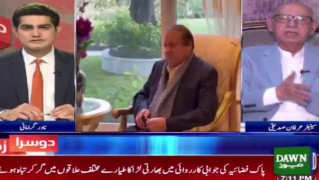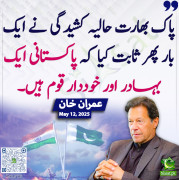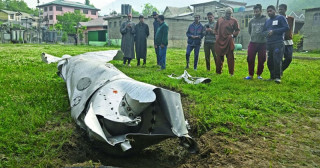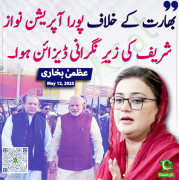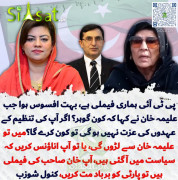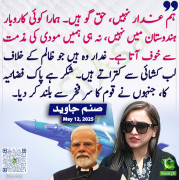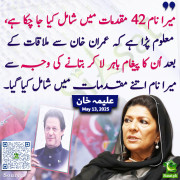Sufism returns to Afghanistan after years of repression
By Dawood Azami
BBC World Service bureau editor, Kabul

As the Afghan government and its international allies intensify efforts to bring the conflict to an end, the role and influence of mystics is being sought to help bring the Taliban into talks on a political solution.
Sufism or Islamic mysticism was once suppressed by the Taliban, but the sect is recovering its place in the country and its millions of followers are once more emerging from the shadows.
Sufis have considerable influence in both rural and urban settings - they are an effective popular force to bring change into society - and people consider them as disinterested mediators in disputes.
''The influence of Sufis will be very significant in bringing peace and tranquillity,'' says Sayed Mahmood Gailani, a Sufi master.
''There are a few people with Sufi backgrounds who are involved in the peace process. But there hasn't been any concerted effort to give the Sufis a systematic and prominent role in it.''
Sufism in Afghanistan is considered an integral part of Islam. People in general respect Sufis for their learning and believe they possess "karamat" - a miraculous spiritual power that enables Sufi masters to perform acts of generosity and bestow blessings.
Sufis in Pakistan Sufism attaches much significance to the concept of tolerance
Ziyarats - Sufi shrines - are popular pilgrimage sites all over the country.
In addition to Afghanistan, Sufi orders have millions of followers in both Pakistan and India too.
The Soviet invasion of Afghanistan in 1979 and the following armed resistance by the mujahideen resulted in the arrival of thousands of Middle Eastern fighters and the introduction of foreign ideologies including Wahabism.
Wahabism insists on a literal interpretation of Islam and sees Sufism and its ideas as anathema. This created tension between Sufis and Ulamas (religious scholars) in some parts of the country.
But it was during the Taliban's rule (1996-2001) when many Sufis were driven underground.
A number were initially part of the Taliban movement but gradually people influenced by the Wahabi ideology became more prominent. Sufis were silenced.
Some Sufis, especially members of the Chishtiyya Sufi Order which considers music to be an effective route to reach Allah, were prosecuted.
"The Taliban invaded Sufi gatherings, humiliated and beat up many of them and their musical instruments were smashed,'' said Afghan Culture Minister Sayed Makhdoom Rahin, who has a Sufi background.
''Sufis are free to hold their ceremonies once again with the same old exuberance denied to them by the Taliban.''
'Home of saints'
Given the respect and influence Sufis enjoy among the local population, their involvement at the grass roots level could help the peace process in war-torn Afghanistan.
Shrine of Khwaja Abdullah Ansari in Herat Sufi shrines can be seen all over Afghanistan
Although Taliban members come from various backgrounds, some have great respect for Sufis and are even followers of Sufism.
"Influential and knowledgeable Sufis can persuade a large number of Taliban to lay down their arms and can also provide guarantees to the Taliban about their safety and peaceful future,'' a Sufi leader, Ahmad Shah Maududi, said.
''But we need to be careful and vigilant because many so-called Sufis have exploited and fooled ordinary people in the garb of Sufism.''
Sufism has been part of Afghanistan almost as long as Islam itself - more than 1,300 years. Afghanistan is commonly called "the home of Sufi saints". The mystics have been an integral part of the life of the people for centuries.
The word Sufism is derived from "suf", the Arabic wood for wool, and refers to woollen robes worn by early ascetics.
Sufis seek to achieve communion with God during mystic moments of union brought about by various methods, including meditation, Zikr (reciting the names of God and other sacred phrases), dancing, hymn singing, music and physical gyrations.
Sufis maintain that human beings are creatures of Allah and they should be served and respected.
''Tolerance, kindness and love to all and malice towards none are the virtues of Sufis,'' says Maulana Obaidullah Nahrkarizi, a prominent Afghan Sufi master from Kandahar province.
''This is the solution to the nation's trauma and battle of the past 30 years''.
Many Afghan cities are among the most important centres of Sufism. Herat is called "the soil of Sufi saints" while Ghazni is known as "the place of Sufi saints".
Some of the greatest Sufi sages of the Muslim world originated from Afghanistan. They refined their insights in the country's lush plains and hidden valleys - and spread their message of peace and love to other parts of the world.
The intensely personal poetry of Sufis has been expressed in Persian and Pashto, the main languages spoken in Afghanistan.
There are several prominent Sufis in contemporary Afghanistan including Ali Hujwiri, Khwaja Moinuddin Chishti and Jalaluddin Balkhi Rumi - founder of the famous Mawlawiya (the Order of Whirling Dervishes).
Another famous Sufi is Pir Roshan, the founder of the Roshaniya Sufi Order, now known as Arzan Shahi - which has a big following in India.
Three Sufi orders are prominent in Afghanistan today - Naqshbandiya founded in Bokhara (Uzbekistan), Qadiriya founded in Baghdad and Chishtiya originated at Chisht-e-Sharif in the western province of Herat.
Their continued growth is arguably a major bonus in Afghanistan's continuing search for peace.
BBC News - Sufism returns to Afghanistan after years of repression
BBC World Service bureau editor, Kabul

As the Afghan government and its international allies intensify efforts to bring the conflict to an end, the role and influence of mystics is being sought to help bring the Taliban into talks on a political solution.
Sufism or Islamic mysticism was once suppressed by the Taliban, but the sect is recovering its place in the country and its millions of followers are once more emerging from the shadows.
Sufis have considerable influence in both rural and urban settings - they are an effective popular force to bring change into society - and people consider them as disinterested mediators in disputes.
''The influence of Sufis will be very significant in bringing peace and tranquillity,'' says Sayed Mahmood Gailani, a Sufi master.
''There are a few people with Sufi backgrounds who are involved in the peace process. But there hasn't been any concerted effort to give the Sufis a systematic and prominent role in it.''
Sufism in Afghanistan is considered an integral part of Islam. People in general respect Sufis for their learning and believe they possess "karamat" - a miraculous spiritual power that enables Sufi masters to perform acts of generosity and bestow blessings.
Sufis in Pakistan Sufism attaches much significance to the concept of tolerance
Ziyarats - Sufi shrines - are popular pilgrimage sites all over the country.
In addition to Afghanistan, Sufi orders have millions of followers in both Pakistan and India too.
The Soviet invasion of Afghanistan in 1979 and the following armed resistance by the mujahideen resulted in the arrival of thousands of Middle Eastern fighters and the introduction of foreign ideologies including Wahabism.
Wahabism insists on a literal interpretation of Islam and sees Sufism and its ideas as anathema. This created tension between Sufis and Ulamas (religious scholars) in some parts of the country.
But it was during the Taliban's rule (1996-2001) when many Sufis were driven underground.
A number were initially part of the Taliban movement but gradually people influenced by the Wahabi ideology became more prominent. Sufis were silenced.
Some Sufis, especially members of the Chishtiyya Sufi Order which considers music to be an effective route to reach Allah, were prosecuted.
"The Taliban invaded Sufi gatherings, humiliated and beat up many of them and their musical instruments were smashed,'' said Afghan Culture Minister Sayed Makhdoom Rahin, who has a Sufi background.
''Sufis are free to hold their ceremonies once again with the same old exuberance denied to them by the Taliban.''
'Home of saints'
Given the respect and influence Sufis enjoy among the local population, their involvement at the grass roots level could help the peace process in war-torn Afghanistan.
Shrine of Khwaja Abdullah Ansari in Herat Sufi shrines can be seen all over Afghanistan
Although Taliban members come from various backgrounds, some have great respect for Sufis and are even followers of Sufism.
"Influential and knowledgeable Sufis can persuade a large number of Taliban to lay down their arms and can also provide guarantees to the Taliban about their safety and peaceful future,'' a Sufi leader, Ahmad Shah Maududi, said.
''But we need to be careful and vigilant because many so-called Sufis have exploited and fooled ordinary people in the garb of Sufism.''
Sufism has been part of Afghanistan almost as long as Islam itself - more than 1,300 years. Afghanistan is commonly called "the home of Sufi saints". The mystics have been an integral part of the life of the people for centuries.
The word Sufism is derived from "suf", the Arabic wood for wool, and refers to woollen robes worn by early ascetics.
Sufis seek to achieve communion with God during mystic moments of union brought about by various methods, including meditation, Zikr (reciting the names of God and other sacred phrases), dancing, hymn singing, music and physical gyrations.
Sufis maintain that human beings are creatures of Allah and they should be served and respected.
''Tolerance, kindness and love to all and malice towards none are the virtues of Sufis,'' says Maulana Obaidullah Nahrkarizi, a prominent Afghan Sufi master from Kandahar province.
''This is the solution to the nation's trauma and battle of the past 30 years''.
Many Afghan cities are among the most important centres of Sufism. Herat is called "the soil of Sufi saints" while Ghazni is known as "the place of Sufi saints".
Some of the greatest Sufi sages of the Muslim world originated from Afghanistan. They refined their insights in the country's lush plains and hidden valleys - and spread their message of peace and love to other parts of the world.
The intensely personal poetry of Sufis has been expressed in Persian and Pashto, the main languages spoken in Afghanistan.
There are several prominent Sufis in contemporary Afghanistan including Ali Hujwiri, Khwaja Moinuddin Chishti and Jalaluddin Balkhi Rumi - founder of the famous Mawlawiya (the Order of Whirling Dervishes).
Another famous Sufi is Pir Roshan, the founder of the Roshaniya Sufi Order, now known as Arzan Shahi - which has a big following in India.
Three Sufi orders are prominent in Afghanistan today - Naqshbandiya founded in Bokhara (Uzbekistan), Qadiriya founded in Baghdad and Chishtiya originated at Chisht-e-Sharif in the western province of Herat.
Their continued growth is arguably a major bonus in Afghanistan's continuing search for peace.
BBC News - Sufism returns to Afghanistan after years of repression





